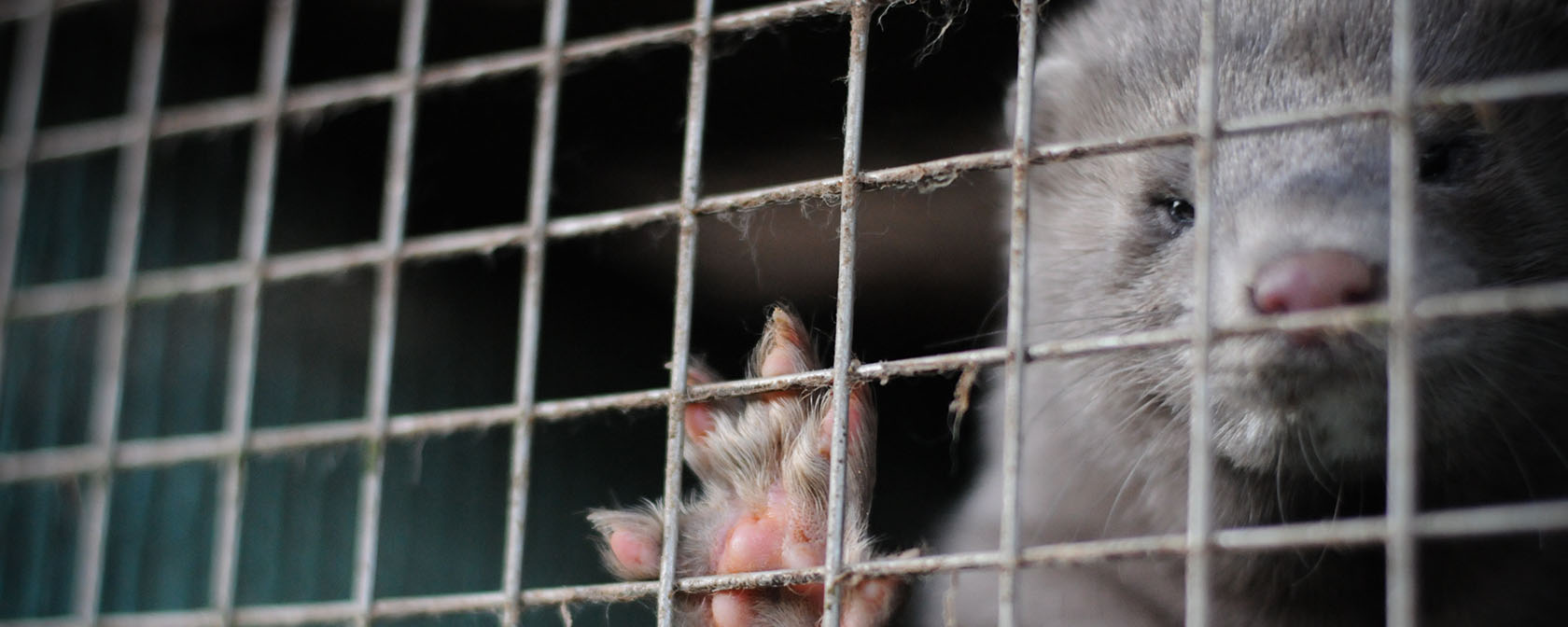By Sara Amundson and Kitty Block
In the midst of a booming coronavirus surge across the United States, a related crisis is brewing on the nation’s mink fur farms where outbreaks have failed to be treated with the same level of concern and seriousness we have seen from other countries.
A recent striking example of this inaction can be found in how the United States has responded to news that a mutation of the coronavirus has been found on mink fur farms in seven countries, including in the United States.
Other countries have already taken steps to counteract fears that the COVID-19 mink variant could interfere with progress on a vaccine. Earlier this month, Denmark, where the variant was also found, ordered a cull of all 17 million mink on its fur farms and last week Irish authorities said they were planning a nationwide cull of mink on fur farms over concerns the animals may have a mutated version of the virus detected in Denmark.
In contrast, infected U.S. farms have continued to operate, posing a dangerous potential health risk. Dr. Anthony Fauci, director of the National Institute of Allergy and Infectious Diseases, has said that it could be too early to gauge the impact of the mink variant on the vaccine. "When you look at the binding sites [on the spike protein] … it does not appear at this point that the mutation that has been identified in the minks is going to have an impact on vaccines and the effect of vaccine-induced immune response," Dr. Fauci told The Independent. "It might have an impact on a certain [number] of the monoclonal antibodies that are developed against the virus—we don't know that yet."
Infected mink have been found on 15 fur farms in Utah, Wisconsin and Michigan. But state officials in Utah and Wisconsin have continued to insist that there is no risk of the virus spreading from animals to people, despite evidence from the Netherlands and Denmark that mink do indeed spread the virus to humans (so far, mink are the only species known to transmit the coronavirus back and forth to humans).
Guidance from the Centers for Disease Control and Prevention and the U.S. Department of Agriculture for fur farmers on handling infected mink has only gone as far as saying animals should be quarantined if it is believed they have contracted COVID-19 and workers should take precautions like wearing a mask and washing their hands.
This lack of action is creating a public health risk for the workers and for the American public. It is also resulting in added suffering for the mink caged on these fur farms.
It is true that there are no good endings for these curious, intelligent animals who are bred and subjected to a life of misery on fur farms before they are slaughtered for their fur. But the coronavirus has multiplied that suffering many times over. Millions of mink have been gassed to death worldwide. Mink are semi-aquatic, meaning they can hold their breaths longer, which only prolongs their suffering when they are gassed.
What is even more inhumane is that in the United States, most of the animals are being allowed to die of respiratory failure, no doubt after they have suffered immensely from the effects of the virus and without any medical care.
The coronavirus crisis has forced us to reexamine our relationship with animals and how we treat them, in the wildlife trade, in factory farms, and on fur farms in particular. Some nations are moving proactively to face this challenge. The Netherlands has announced it will move up its deadline for closing all of its fur farms by two years, to 2021. Denmark is also under pressure to close down its fur industry and recently, the world’s largest auction house, based in Denmark, announced it would close its doors for good. Israel has announced its intentions to ban fur sales, and France has said it will shut down its fur industry.
The U.S. government, too, should immediately take steps to stop the spread of the virus on fur farms, and press for closing down the nation's fur industry. We already know that U.S. demand for fur is dropping every year with more and more Americans turning to fur alternatives. The coronavirus has shown us that fur's ill effects stretch far beyond animal suffering, and there is no reason at all to let this cruelty continue for a day longer.
Kitty Block is President and CEO of the Humane Society of the United States.




